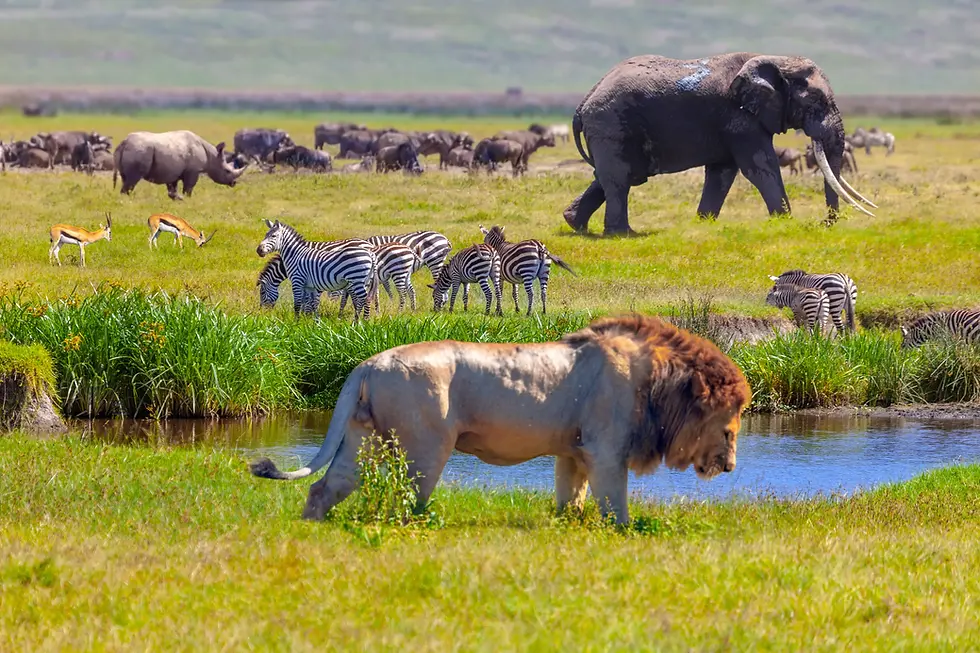Oceans and Marine Life
- Gulianna Mogollon
- Jun 3, 2025
- 2 min read
Millions of pieces of plastic end up in the ocean, leaving marine animals trapped and killed by plastic. Every year, over 11 million metric tons of plastic ends up in our ocean. From plastic bags to straws, the pollution doesn't just go away. We, as humans, produce
around 400 million metric tons of plastic every year.
Plastic waste enters our oceans from many places around the world every day. Increased consumption in many continents and countries has made ocean pollution a universal problem, which causes damage to not only marine animals, but our health and economics. Fish in the North Pacific can ingest from a range of 12,000 to 24,000 tons of plastic each year, which leads to intestinal injury and death and plastic rising in the food chain to bigger fish, marine animals, and humans that consume seafood. Turtles can often mistake floating plastic for food. They can choke, get injured, starve by thinking that they’re full from the plastic, and eventually die. Plastic ingestion reduces the storage of the stomach, which causes starvation. Ocean mammals can ingest and get tangled up in plastic. Most plastic emissions come from middle-income countries, where plastic usage is increasing. During heavy storms, plastic usage can increase as much as trash being washed into waterways.
According to “TheOceanCleanup.com”, plastic pollution has been estimated to
cost up to $19 billion per year to the global economy. These costs are said to stem from the
impact on fisheries, aquaculture, tourism, and governmental cleanup. Combating plastic
pollution in the marine environment is crucial to protect ecosystems from irreversible damage and to preserve biodiversity. By addressing this global issue, we not only ensure the vitality of our oceans but also promote a sustainable future for both the environment and humanity. The Global Partnership on Plastic Pollution and Marine Litter (GPML) brings together actors working on plastic pollution and marine litter reduction. GPML plays a major role in strengthening coordination to tackle plastic pollution worldwide.
Sources:




Comments